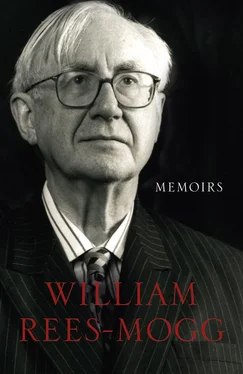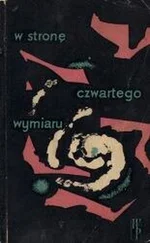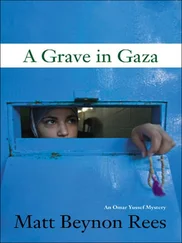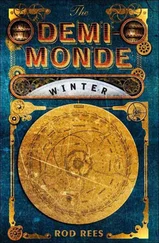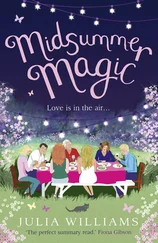‘It would be no good,’ he said. ‘There are twelve boys in our dormitory. Each has a position in the order. “Y” – the boy who was being bullied – is twelfth. You and I are about eight and nine. We do not have the strength to intervene. If we do, we shall join “Y” in being bullied; it will do him no good and we shall then be bullied ourselves.’ I recognized the truth in Bishop’s logic and, I regret to say, accepted the realities of our political situation.
The winter passed. The spring of 1940 came and with it the German invasion of Norway, the attack on Belgium and the Netherlands, the battle for France, the fall of the Chamberlain Government, the appointment of Winston Churchill as Prime Minister. While these great events were happening, one of the boys in our house had gone down with polio; it was a mild case and he survived with little or no disability. But we were all put in quarantine, and encouraged to stay outdoors. So I heard of most of these events, and Churchill’s early speeches as Prime Minister, sitting in the bright sunshine on Clifton’s Under Green, listening to a junior master’s portable radio.
In the West Country, life went on surprisingly normally during what we all knew was an ultimate struggle for survival. There was a German daylight raid on the docks at Avonmouth. A detachment of the Coldstream Guards, having just been taken off the beaches of Dunkirk, spent a few weeks at Midsomer Norton. We felt the safer for their presence. We all followed the daily scores of German aircraft shot down in the Battle of Britain. We now know that they were exaggerated. The fear of German invasion gradually receded. Throughout this time my basic expectation did not change. I thought we would win the Battle of Britain, I believed in Winston Churchill, I did not expect an invasion to succeed, I looked to the United States as ‘the arsenal of democracy’. I felt confident that we would win in the end, as we had in 1918 and 1815.
My American aunts sent a Western Union cable in June inviting me to go to America; it even, touchingly, promised that I would be able to continue with the classics. I was rather excited by the idea, which might well have changed my life. I would, in any case, have been at greater risk from torpedoes crossing the Atlantic, than from bombs if I stayed at home. My parents took the view that they were not entitled to send me, or my sisters, if the other people of Temple Cloud could not send their children. In any case they believed in keeping the family together. I am sure that they were right, but I have always felt grateful for the invitation.
We went back to Clifton for the autumn term of 1940. A new brick and concrete shelter had been built for us at the end of Under Green; it looked like an oversized public lavatory. Thirty boys from Poole’s House slept there every night, in bunks. I did not find it disagreeable; it was certainly warmer than the dormitory.
The German night attacks on the larger cities outside London started in November. Coventry was the first to be hit. Bristol came next. We were bombed in two raids, with a week between them. On the first occasion the bombs did not come very close to our shelter, though it was a noisy night and there were large fires in the central area. My parents, in Cholwell, could see the glow of the fires, and heard the bombers passing overhead. The Heinkel bombers had a particularly penetrating, intermittent drone.
The second night was more frightening. As the sirens sounded, the matron suggested that we should all say a prayer. I suggested that we should say our normal grace, ‘For what we are about to receive, may the Lord make us truly thankful’!
The Luftwaffe used at that time to drop their bombs in sticks of four or five. In the middle of the raid, we heard a stick of bombs moving towards our shelter, which would certainly not stand a direct hit. The first bomb was loud enough, the second louder, the third louder still. The fourth was loudest of all, in fact about 50 yards away, and threw stones and earth on top of the shelter. It was apparent that the stick of bombs was falling in a straight line. If there was a fifth, it would land on top of us. We waited for it. It did not come. Although I was to be bombed again later in the war, in Somerset and London, that was the nearest I came to being killed.
After the previous night of the Bristol Blitz, my parents had thought of taking me away from Clifton. There was no question about that the second time, for them or for the school. I was driven out to Cholwell by one of the housemasters, Mr Hope Simpson, on his motorbike. We passed the burnt-out churches and the broken glass. My father had driven in but missed us on the way. The school evacuated itself to Cholwell House, sleeping on mattresses. The boys ate us out of the drums of Canadian honey which my mother, ever mindful of the Irish famine, had laid up in the cellar. After a few days most of them dispersed to their homes, and remain only as names in the Cholwell visitors’ book. My last two terms at Clifton Preparatory School were spent at Butcombe Court, a pleasant country house about ten miles from Cholwell, within bicycling distance on Sundays.
In late May 1941 I was in my last term at Clifton Preparatory School when the German battleship Bismarck sunk the Hood in the mid-Atlantic. Only three of the Hood ’s crew of 1421 survived. My mother and I were taken into Temple Meads Station in Bristol by my father; we went by train to Windsor where I was about to sit the Entrance Scholarship for Eton. Most public schools were by that time sending their scholarship papers to be taken at the preparatory schools, but Eton’s only concession to the problems of wartime travel was to put up the scholarship candidates in the boys’ houses. My mother stayed at the White Lion in the High Street; I was sent to Lyttelton’s House.
The three days of the scholarship examination were interwoven with reports of the pursuit of the Bismarck by the Royal Navy. On the last evening, the Bismarck was torpedoed from the air and sank the following day. The Hood had been avenged. I found the exam papers rather too difficult for me. My Latin, thanks to my father, was tolerable, though hardly up to scholarship standards; my Greek was negligible; my French was of Common Entrance standard; my mathematics was scarcely up to that. However, I enjoyed the history paper and romped away with the essay, which was set on Satan’s fall from Heaven as described in Milton’s Paradise Lost . It was just my subject:
Him the Almighty Power
Hurled headlong flaming from th’ ethereal sky
With hideous ruin and combustion down
To bottomless perdition.
I did not need to be asked twice to describe the fires of Hell. Lyttelton later told my mother that my essay was the best of them all.
Before we went back he had a long conversation with her, which she recounted to me on the train. He did not know whether I would get the scholarship; no Eton scholarship had ever been given to a candidate as weak in the classics. In any case, he thought that I would find the atmosphere of College too tough. He said he would be very pleased to take me into his house, whether I got the scholarship or not.
We discussed this with my father when we got home. I was also entered for the Charterhouse scholarship. My father suggested that I should go to Eton if I got the Eton scholarship, go to Charterhouse if I got the Charterhouse scholarship, and go to Lyttelton’s House if I got neither. I was happy with that proposal. The Charterhouse scholarship would pay half my school fees, and I liked the idea of being a scholar. On the other hand, I much liked the atmosphere of Eton, and had been impressed by Lyttelton himself. I had even been measured for my top hat.
Читать дальше
